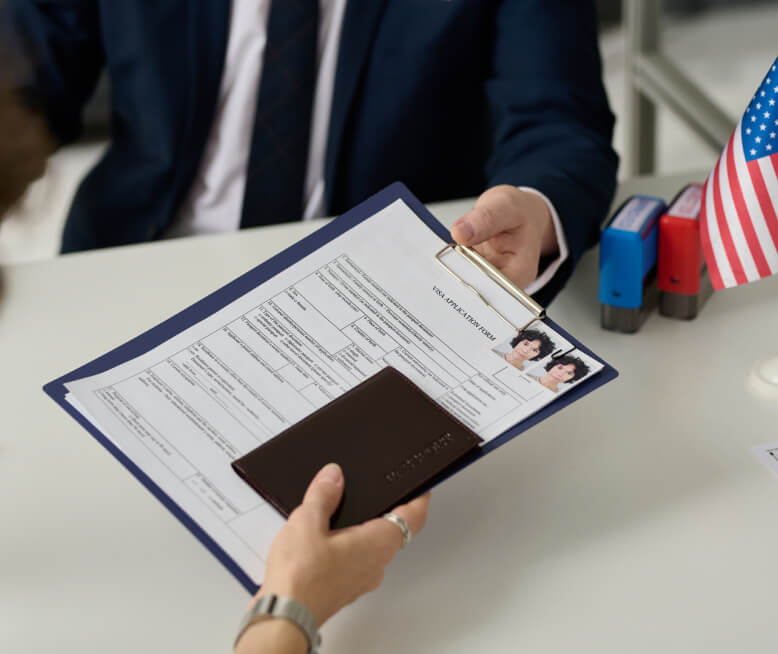When your business needs temporary non-agricultural workers, the H-2B visa program can be an invaluable solution. But the process requires careful planning and attention to detail. Our experienced H-2B visa lawyers in Miami, FL, are here to guide you every step of the way, helping you secure the workers you need to keep your business running smoothly.
What is the H-2B Visa Program?
The H-2B visa program allows U.S. employers to sponsor foreign workers to fill temporary non-agricultural jobs.
To qualify, employers must show that:
- There are not enough U.S. workers who are able, willing, qualified, and available to do the temporary work.
- Employing H-2B workers will not adversely affect the wages and working conditions of similarly employed U.S. workers.
- The need for workers is truly temporary, meaning a recurring need lasting no more than 10 months per year or a one-time need lasting up to three years.
Once in the U.S., workers are granted H-2B status for up to one year, with extensions available for a total of up to three years.
H-2B Visa Application Process
The H-2B visa application process involves several steps and government agencies:
Step 1: Secure a Temporary Labor Certification from the DOL
Before applying with U.S. Citizenship and Immigration Services (USCIS) to sponsor H-2B workers, the employer must secure a temporary labor certification from the U.S. Department of Labor (DOL) (or the Guam Department of Labor if the job is in Guam).
This is a two-step process that involves filing two separate applications with the DOL:
- A prevailing wage request, defining the location, job duties, and other features of the H-2B role and asking the DOL to define a minimum wage for the job opportunity. Must be filed at least 4.5 to 6 months before the anticipated start date for the H-2B job opportunity.
- A temporary labor certification application establishing the employer’s need to employ a specific number of temporary workers in that role and the specific start and end dates for the employer’s temporary need. The employer must also perform certain recruitment activities to demonstrate that U.S. workers are unavailable. Must be filed 75-90 days before the anticipated start date of the H-2B season.
Once issued, the Temporary Labor Certification authorizes the employer to apply with the immigration agencies to sponsor a certain number of foreign workers for a specific job opportunity during a temporary need period with defined start and end dates.
Step 2: File Form I-129 with USCIS
Once the DOL issues a temporary labor certification for the H-2B job opportunity, the employer must
If the H-2B workers are already in the United States, the I-129 petition can ask USCIS to change their status from a different visa category to H-2B classification or transfer them from one H-2B employer to another.
If the H-2B workers are abroad, the I-129 petition will ask USCIS to approve H-2B classification for a specific number of workers, who can then use that approved petition to apply for H-2B visas at a U.S. consular post abroad.
Unique to the H-2 program:
- The I-129 petition can be filed as a “blanket” or group application, requesting H-2B classification for up to 25 workers.
- Consular I-129 petitions can be filed for unidentified “unnamed workers” instead of specific individuals, allowing employers flexibility to add, remove, and replace members in their H-2B lineup at any stage of the process.
Importantly, if the employer wants to sponsor for the same H-2B job opportunity some workers who are “in-country” or already in the United States and others that are “out of country” or abroad and processing visas at the consulate, they must file separate I-129 petitions for each group of similarly situated workers.
Step 3: Workers Abroad Apply for Visas at the Consulate
After USCIS approves Form I-129, prospective H-2B workers outside the U.S. must:
- Apply for an H-2B visa at a U.S. embassy or consulate and seek admission at a U.S. port of entry, or
- If a visa is not required (Canadians only), seek direct admission at a U.S. port of entry through U.S. Customs and Border Protection (CBP).
Eligibility Requirements for H-2B Workers
To qualify for an H-2B visa, workers must:
- Be nationals of a country designated by the Department of Homeland Security as eligible for H-2B participation.
- Have a job offer from a qualifying U.S. employer for temporary non-agricultural work.
- Meet the minimum education, training, experience, and other requirements for the job, if any.
- Intend to return home after their authorized stay.
Meeting the “Temporary Need” Requirement for H-2B Visas
A key requirement for H-2B visas is that the employer must demonstrate a temporary need for the workers’ services. U.S. Citizenship and Immigration Services (USCIS) recognizes four types of temporary need:
- One-Time Occurrence: A one-time need for temporary workers, such as a special project or to cover extended employee leave.
- Seasonal Need: Recurring need tied to a season, like extra staff for a summer resort or winter ski lodge. The off-season periods must be specified and predictable.
- Peak Load Need: A need to temporarily supplement a permanent workforce due to short-term demand. This can recur at different times or multiple times in a year.
- Intermittent Need: An occasional need for temporary workers when the employer doesn’t have permanent staff for sporadic, short-term work.
Employers must provide evidence supporting their claim of temporary need, including details about the nature of the work, the number of workers needed, and the duration of the need. Our team at De Wit Immigration Law in Miami can assist employers in accurately representing their temporary needs and ensuring compliance with USCIS regulations.
How Our H-2B Visa Lawyers Can Help
Our experienced H-2B visa attorneys provide comprehensive guidance and support throughout the H-2B visa process:
- Assessing Eligibility: We’ll evaluate your temporary staffing needs and determine if the H-2B program is the right fit for your business.
- Prevailing Wage Determination: We’ll help you obtain the required prevailing wage determination from the DOL.
- Temporary Labor Certification: We’ll manage the temporary labor certification process for you, including preparing ETA Form 9142B, gathering supporting evidence, and guiding you through recruitment.
- I-129 Petition: We’ll prepare and file your I-129 petition with USCIS, ensuring that all required evidence and documentation is included.
- Consular Processing: We’ll assist your workers with preparing their visa applications and supporting documents for consular processing.
- Compliance: We’ll advise you on all applicable H-2B program requirements, such as wage obligations, recordkeeping, and more, to help you stay compliant and avoid penalties.
Get Started with our H-2B Visa Attorneys Today
If you’re ready to explore how the H-2B visa program can help meet your temporary staffing needs, contact our office today to schedule a consultation. Our knowledgeable H-2B visa lawyers will take the time to understand your unique situation and develop a tailored strategy to help you secure the workers you need.
With our guidance and support, you can navigate the H-2B visa process with confidence and keep your business running smoothly.
Frequently Asked Questions
Yes, there is an annual cap of 66,000 H-2B visas, with 33,000 visas available for workers who begin employment in the first half of the fiscal year (October 1 – March 31) and 33,000 visas for those who begin in the second half (April 1 – September 30). In some years, additional visas may be made available if authorized by Congress.
The H-2B application process typically takes about 5-6 months from start to finish,, so it’s important to plan ahead and begin the process early. Our attorneys can help you develop a timeline and strategy to meet your staffing needs.
H-2B workers are generally tied to the employer who sponsors them and may not change employers without an approved I-129 transfer petition from a new sponsoring employer holding a valid temporary labor certification.
H-2B status is temporary and does not directly lead to permanent residency (a green card). However, H-2B workers may be eligible for employment-based or family-based green cards if they have a separate qualifying petition and meet all eligibility requirements.
Whether you are a foreign investor or entrepreneur, a U.S. employer of any size, or an individual seeking to immigrate based on your talent or a close family relationship, we offer straightforward immigration strategies to advance your personal and professional goals.

-
I’m an Entrepreneur
-
I’m an Employer
-
I’m an Individual

I am extremely satisfied with the professional services provided by Jose and his team. Their profound knowledge of immigration law, coupled with exceptional customer service, ensured all my doubts and questions were promptly addressed. Highly recommended.



